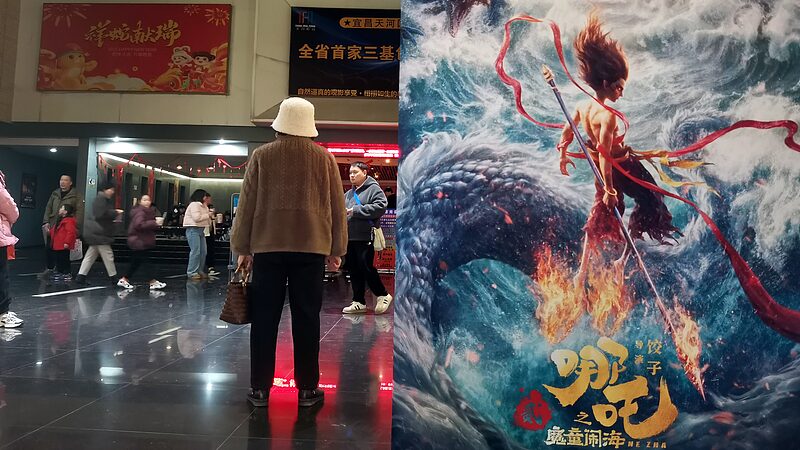A stunning Ne Zha 2-inspired mural in a village in Zibo, Shandong, has captured the attention of visitors from near and far. This impressive 80-square-meter artwork, painted by a local artist, adorns the walls of a rural farmhouse, showcasing vibrant colors and intricate details that bring the beloved animated character to life.
The mural's viral success mirrors the meteoric rise of \"Ne Zha 2,\" which has surged to become the highest-grossing animated film worldwide and currently ranks eighth on the all-time box office list. The artwork not only celebrates the film's popularity but also highlights the artistic talent thriving in the region.
Visitors to the village are drawn to the mural's vivid portrayal of Ne Zha, creating a cultural landmark that bridges local artistic expression with global cinematic achievements. This blend of traditional artistry and contemporary influences underscores the dynamic cultural landscape of Shandong.
Reference(s):
cgtn.com








